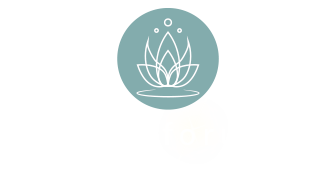Reiki-Magazin.de sagt: Das Nationale Zentrum für Komplementäre und Alternative Medizin (NCCAM) der USA berichtet auf der eigenen Website ausführlich über Reiki – Geschichte, Praxis, Anwendungsmöglichkeiten und Ausbildung – und gibt hilfreiche Hinweise für die Zusammenarbeit mit der Schulmedizin. Eine Auflistung ausgewählter wissenschaftlicher Studien rundet den informativen Bericht der NCCAM, einer Unterorganisation des Nationalen Gesundheitsinstitutes der USA (National Institutes of Health) ab.
Was behauptet wird
Nccih.nih.gov sagt: What the Science Says About the Safety of Reiki
Reiki appears to be generally safe. In studies of Reiki, side effects were no more common among participants who received Reiki than among those who didn’t receive it.
Nun, das stimmt. Handauflegen oder Nichthandauflegen ist generell ungefährlich.
Was nicht gesagt wird
- Assefi N, Bogart A, Goldberg J, et al. Reiki for the treatment of fibromyalgia: a randomized controlled trial. Journal of Alternative and Complementary Medicine. 2008;14(9):1115–1122.
CONCLUSION: Neither Reiki nor touch improved the symptoms of fibromyalgia. Energy medicine modalities such as Reiki should be rigorously studied before being recommended to patients with chronic pain symptoms. - Catlin A, Taylor-Ford RL. Investigation of standard care versus sham Reiki placebo versus actual Reiki therapy to enhance comfort and well-being in a chemotherapy infusion center. Oncology Nursing Forum. 2011;38(3):E212–220.
FINDINGS: Although Reiki therapy was statistically significant in raising the comfort and well-being of patients post-therapy, the sham Reiki placebo also was statistically significant. Patients in the standard care group did not experience changes in comfort and well-being during their infusion session. - Demir M, Can G, Celek E. Effect of Reiki on symptom management in oncology. Asian Pacific Journal of Cancer Prevention. 2013;14(8):4931–4933.
Abstract: Reiki is a form of energy therapy in which the therapist, with or without light touch, is believed to access universal energy sources that can strengthen the body's ability to heal itself, reduce inflammation, and relieve pain and stress. There is currently no licensing for Reiki nor, given its apparent low risk, is there likely to be. Reiki appears to be generally safe, and serious adverse effects have not been reported. So in this article provides coverage of how to use Reiki in oncology services. - Ferraresi M, Clari R, Moro I, et al. Reiki and related therapies in the dialysis ward: an evidence-based and ethical discussion to debate if these complementary and alternative medicines are welcomed or banned. BMC Nephrology. 2013;14:129.
SUMMARY: This paper debates the current evidence on Reiki and related techniques as pain-relievers in an ethical framework, and suggests that physicians may wish to consider efficacy but also side effects, contextualization (availability and costs) and patient's requests, according also to the suggestions of the Society for Integrative Oncology (tolerate, control efficacy and side effects). - Friedman RS, Burg MM, Miles P, et al. Effects of Reiki on autonomic activity early after acute coronary syndrome. Journal of the American College of Cardiology. 2010;56(12):995–996.
Das ist nur eine Correspondence, kein Paper! - Kundu A, Lin Y, Oron AP, et al. Reiki therapy for postoperative oral pain in pediatric patients: pilot data from a double-blind, randomized clinical trial. Complementary Therapies in Clinical Practice. 2014;20(1):21–25.
RESULTS: Thirty-eight children participated. The blinding procedure was successful. No statistically significant difference was observed between groups on all outcome measures. - Lee MS, Pittler MH, Ernst E. Effects of Reiki in clinical practice: a systematic review of randomised clinical trials. International Journal of Clinical Practice. 2008;62(6):947–954.
CONCLUSION: In conclusion, the evidence is insufficient to suggest that reiki is an effective treatment for any condition. Therefore the value of reiki remains unproven. - Nield-Anderson L, Ameling A. Reiki: a complementary therapy for nursing practice. Journal of Psychosocial Nursing and Mental Health Services. 2001;39(4):42–49.
Abstract: 1. Reiki is an ancient healing art involving the gentle laying on of hands. It can be practiced anytime and anywhere. 2. Reiki can be used as a complementary treatment to medical protocols. 3. Hand positions customarily correspond to the body's endocrine and lymphatic systems and major organs, focusing on seven main chakras. 4. More research investigating the effects of Reiki on persons with psychiatric and medical disorders is necessary. - Thrane S, Cohen SM. Effect of Reiki therapy on pain and anxiety in adults: an in-depth literature review of randomized trials with effect size calculations. Pain Management Nursing. 2014; February 27 [Epub ahead of print].
Although the number of studies is limited, based on the size Cohen's d statistics calculated in this review, there is evidence to suggest that Reiki therapy may be effective for pain and anxiety. - vanderVaart S, Gijsen VM, de Wildt SN, et al. A systematic review of the therapeutic effects of Reiki. Journal of Alternative and Complementary Medicine. 2009;15(11):1157–1169.
RESULTS: The modified CONSORT Criteria indicated that all 12 trials meeting the inclusion criteria were lacking in at least one of the three key areas of randomization, blinding, and accountability of all patients, indicating a low quality of reporting. Nine (9) of the 12 trials detected a significant therapeutic effect of the Reiki intervention; however, using the Jadad Quality score, 11 of the 12 studies ranked "poor."

